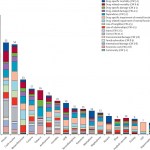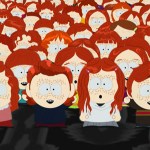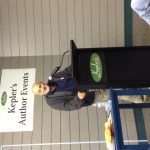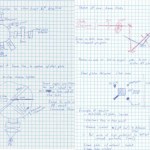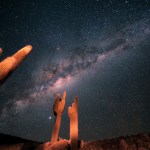Science
We do not have a rational drug policy. There are potent and dangerous drugs that are socially accepted because hey, we've always drunk alcohol and smoked cigarettes, while there are milder, far less dangerous drugs that are damned because they're new and unfamiliar. And so we throw people in prison for long jail terms if they are caught with some marijuana, while people can go out every weekend and drink themselves into an abusive, obnoxious state, and we just tell them they're cool.
It is possible to take an objective look at the effects of various drugs on individuals and society, and ask "…
And now for something completely different.
Except that it isn't really. I say that it isn't really different because, although this post will seem to be about politics, in reality it will be about a common topic on this blog: Anti-science. And where is this anti-science? Sadly, it's in the platform of a major party of one of the largest states in the country. It also meshes with the anti-science inherent in a lot of so-called "complementary and alternative medicine" (CAM) and all comes together in one place: The proposed 2012 Platform of the Republican Party of Texas. It's all there, as you…
Why do we need to spend any more effort on extra-solar planets?
We found some, they're there. Lumps of rocks, gasballs. We're done, right?
This, loosely paraphrased, was a serious question I got last week.
The context was a question of why I was spending serious effort on exoplanet research, rather than focusing exclusively on other subfields.
I've heard similar comments from physicists, some particle physicists are notoriously focused in their consideration of what counts as "real physics", but this came from an astronomer; and one that I know does stars, inside the galaxy, sometimes, not…
"Name one thing robots can't do in space that humans can!" was the challenge from a speaker at a meeting I attended many years ago.
"Have babies!" was the loud and prompt reply from a grad student friend of mine at the back, thereby winning the argument to great applause.
It is important to remember that while science and discovery is important, it is not the ontological basis for space exploration.
Space is, ultimately, about existential motivations. The science helps drive the motivation, and provides the information that enables space exploration, but is in many important ways not the…
Red hair. Freckles. Pale skin. Soulless. What good are they?
Seriously — I have a red-haired son and brother and cousins, and you've got to wonder why evolution has spawned all these strange color variants — there's no known advantage to ginger-ness, and plenty of disadvantages.
The biochemical cause of these differences are known. Pigmentation is produced by the deposition of a complex light absorptive polymer called melanin in cells. We vertebrates produce primarily two forms of melanin, eumelanin and pheomelanin.
Eumelanin is a dark pigment; cells loaded up with it look black or dark…
David Brin has a new novel out, Existence
Brin is on a book tour at independent book stores on the west coast and was in the Bay Area saturday, where he spoke at Kepler's Books in Menlo Park, having stopped by at SETIcon II earlier.
David Brin
The book is nice and chunky, and is a medium future novel, somewhat in the spirit of Earth.
I am told that the story also includes the beginning of Uplift as a side plot.
David is one of my all time favourite authors, and while at Caltech, as a founding member of SPECTRE, the legendary Caltech Science Fiction Club, I hosted him for the first of…
SETIcon feels like a curious mix of an AAS annual meeting and a science fiction WorldCon.
Unfortunately, this extends to the concept of the parallel session.
So, it is necessary to pick and choose.
So, "Asteroids: Junkpiles or Resources?" - Yes.
"Hubble 3D" - I really want to see Frank Summers' rendition, but I'll get another chance.
And, while I do want to know "When I can buy a ticket to the Moon", I got the rah-rah spiel
on the impressive progress in commercial space already.
Hence the panel on: "The Next Big Science Revolution" - I gots to know.
As apparently does everyone else. Another "…
We know now that there are planets out there.
Lots and lots of planets.
We are still pinning down the exact incidence over all stellar populations, and we are barely at the point where we can directly confirm the presence of terrestrial planets, but if parameter space is smooth and the universe does not conspire against us, then terrestrial planets must be quite common.
10% incidence would not be a bad conservative guess, but I would not be surprised if the incidence is 30-50%.
We will know for sure soon.
We don't know how life starts.
We have some well founded suspicions, and every year the…
The SETI Institute is sponsoring the Second Search for Extraterrestrial Intelligence Conference at the San Jose Santa Clara Convention Center this weekend.
The Conference is an unusual blend of hard science, science fiction and media: with Geoff Marcy, Alex Filippenko and Debra Fischer, among others, mixing in with NASA honchos, Silicon Valley enthusiasts and Bill Nye the Science Guy.
There are three days of talks, presentations and parallel sessions on topics ranging from "The Kepler Mission" to "Would Discovering ET Destroy Earth's Religions".
Saturday night Jill Tarter is being honoured…
In which celebrity culture comes to particle physics.
------------
It's been about six months since we had a big flurry of Higgs Boson stories, and as enjoyable as the relative quiet has been, it means we're due for another run. And, predictably enough, the usual suspects are stoking speculation about what, exactly, will be officially revealed in a few weeks at the summer particle physics meetings. This spilled over into the rest of the social media universe, with the joke hashtag #HiggsRumors becoming a trending topic on Twitter for a little while last night.
As is also sadly predictable,…
I've been working up a science talk for the fall — I am going to do a basic review of many the mechanisms other than selection that contribute to evolution for lay audiences. And then I discover that T. Ryan Gregory has already done some of the work for me.
Maybe I should just plagiarize it?
(No, not really: my talk is less genomics, more development, and gets more basic than this one. But Gregory's talk is very, very good.)
(via Sandwalk.)
I'm coming very late to the party on this one, but I wanted to comment on Philip Kitcher's recent article on scientism, published in The New Republic.
A while back I did two posts on scientism (here and here). The first of these posts was titled, “What is Scientism?”, since it's never been entirely clear to me what someone accused of scientism is actually guilty of. Often it just means you are guilty of being dismissive of religious “ways of knowing,” such as direct experience of God or divine revelation. Since I think one ought to be dismissive of such things, I am often keen to defend…
I found this very satisfying: Steven Pinker summarizes all the problems with group selection. It's a substantial essay, but if you just want the gist of it, here's the conclusion.
The idea of Group Selection has a superficial appeal because humans are indisputably adapted to group living and because some groups are indisputably larger, longer-lived, and more influential than others. This makes it easy to conclude that properties of human groups, or properties of the human mind, have been shaped by a process that is akin to natural selection acting on genes. Despite this allure, I have argued…
Last night, as I was flying in to San Francisco, Matt Cain pitched the first perfect game in Giants history. Now, a casual observer might think these events were unrelated, but to ancient alien theorists, the connection between them could not be more obvious. Thus, you should come to Kepler's Books in Menlo Park this evening at 7pm, to see what amazing events will happen next.
Well, OK, the most that will probably happen is that I might read a bit from the How to Teach Relativity to Your Dog in a silly voice. But you don't know that I won't use my awesome ancient alien magic to transmute lead…
In which we look at the end of the Steelypips era and the launch of ScienceBlogs.
------------
Before the Great Upgrade derailed things completely for a month, I was working on a recap of this blog's history, and had gotten up through the end of 2005, which marked the end of my time as an independent blogger.
I was first approached about the idea of ScienceBlogs in late 2005 by Christopher Mims, then at Seed magazine, who later tweeted a secret history of ScienceBlogs. I was initially a little apprehensive about the idea, as I was still pre-tenure at that time, and hadn't attempted to explain…
In which we look again at the question of why, despite the image of physicists as arrogant bastards, biologists turn out to be much less collegial than physicists.
------------
While I was away from the blog, there was a spate of discussion of science outreach and demands on faculty time, my feelings about which are a little too complicated to boil down to a blog post in the time I have available. I did notice one thing in Jeanne Garb's guest blog post at Nature Networks:
Yet, given the current system, most scientists are choosing to keep a closed-notebook policy because they fear getting…
Two How to Teach Relativity to Your Dog items:
First and foremost, I'll be appearing at Kepler's Books in Menlo Park, CA, this Thursday, June 14 at 7:00pm. I'll probably read a bit of the book, so if you've ever wanted to hear me do the silly dog voice live, here's your chance. Provided, of course, that you're in the San Francisco Bay Area, or will be this Thursday night.
This will be my second trip to California in as many weeks, because all last week I was at DAMOP in Anaheim (the Chain-Restaurant-est Place on Earth). I spent a fair bit of time there explaining the whole talking-to-the-dog…
"Art has never been a popularity contest." -James Levine
Sometimes, you might feel like you've heard it all, seen it all, and that nothing's original anymore. But I beg to differ. Just because great things have come before doesn't mean that there aren't great things happening right now. While it might "only" be a cover of a Kanye West song (which itself heavily samples a Ray Charles song, at one time featured here), I encourage you to listen to the Automatic's brilliant version of
Gold Digger.
And while the stories of the Universe I tell you about here don't tend to be my personal, original…
Sometimes I feel like Dug, the talking dog in the movie Up, in that when it comes to blogging I'm often easily distracted. The reason I say this is because there's been a "viral" (if you can call it that) video floating around the antivaccine quackery blogosphere that antivaccinationists are passing around as though it's slam-dunk evidence that vaccines aren't safe. It's called the Chalkboard Campaign:
Basically, it's one long series of chalkboard images touting pseudoscience and antivaccine misinformation over and over again, all over a sappy pop music soundtrack, using the tag line from…
"You don't use science to show that you're right, you use science to become right." -Randall of xkcd
In January of 2008, I began writing this blog, Starts With A Bang, both for myself and for all of you, because we all have something in common.
Image credit: © Stéphane Guisard, "Los Cielos de Chile", via astrosurf.com.
The same planet, the same heavens, the same laws of nature and the same Universe are something that we all have in common. And all of us, no matter how intrinsically smart, talented, or brilliant our instincts are, come into this world knowing absolutely…
